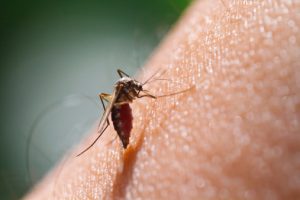 Zika virus and dengue are two illnesses that are transmitted by mosquitoes. Both Zika and dengue are illnesses that are growing a problem. Although there may be many similarities between the two, they both have their own unique differences, which helps to diagnose them and determine proper treatment.
Zika virus and dengue are two illnesses that are transmitted by mosquitoes. Both Zika and dengue are illnesses that are growing a problem. Although there may be many similarities between the two, they both have their own unique differences, which helps to diagnose them and determine proper treatment.
Dengue was first recognized in the 1950s when epidemics broke out in the Philippines and Thailand. Zika was first discovered in 1947 and got its name after the Zika forest in Uganda, Africa. Dengue commonly affects Asian and Latin American countries, and Zika is growing in tropical Africa, Southeast Asia, and the Pacific Islands. As of recently, a large Zika outbreak has been seen in Brazil and cases are popping up around the world.
Advertisement
There is far more information available about dengue as opposed to Zika. Research on Zika is ongoing to better understand the virus and its complications, and hopefully one day develop a vaccine or even a cure for it.
Comparison table: Zika vs Dengue
| Zika virus | Dengue | |
|---|---|---|
| Mosquito type | Aedes mosquito- Aedes aegypti and Aedes albopictus | Aedes mosquito- Aedes aegypti, and Aedes albopictus (lesser extent) |
| Areas affected | Mexico, Central America, South America Sporadic transmission | The Pacific Islands, the Caribbean (except Cuba and the Cayman Islands), Mexico, Africa, Central and South America (except Chile, Paraguay, and Argentina), the Indian subcontinent, Southeast Asia, Southern China, Taiwan |
| U.S. citizens travelling to affected areas | 11 million | 17 million |
| Global widespread transmission | 41 countries and territories | More than 100 countries |
| Cases reported in the U.S. | 388 | 677 |
| Risk groups | Pregnant women, travelers | Residents or travelers in tropical areas, those with a history of dengue fever virus |
| Symptoms | Fever, rash, joint pain, red eyes, headaches, and muscle pain. Many Zika patients will not experience any symptoms and remain unaware that they have the virus. | Sudden high fever, severe headaches, pain behind the eyes, severe muscle and joint pain, fatigue, nausea, vomiting, skin rash, mild bleeding, easy bruising, and nose bleeds. |
| Incubation period | Not known well, but researchers estimate it is anywhere from a few days to a few weeks. | Incubation period is four to ten days after the bite from an infected mosquito. Symptoms last for two to seven days |
| Transmission risks | Only through mosquito bites. | Through mosquito bites, mother to fetus, sexual contact, and blood transfusions. |
| Complications | Microcephaly, Guillain-Barré syndrome | Dengue hemorrhagic fever, dengue shock syndrome |
| Diagnosis | Based on symptoms, recent history of travel, laboratory testing. | Medical and travel history, any contact you may have had with mosquitoes, certain laboratory tests. |
Zika vs. Dengue: symptoms and diagnosis
Symptoms of dengue are sudden high fever, severe headaches, pain behind the eyes, severe muscle and joint pain, fatigue, nausea, vomiting, skin rash, and mild bleeding including bleeding gums, easy bruising, and nose bleeds.
Zika virus symptoms include fever, rash, joint pain, red eyes, headaches, and muscle pain. Many Zika patients will not experience any symptoms, so they remain unaware that they have the virus, which increases the risk of transmission. Furthermore, Zika incubation period is still not known well, but researchers estimate it is anywhere from a few days to a few weeks.
Dengue can be easily detected through a blood sample to check for the virus and antibodies. If you return sick from a vacation in a tropical region, tell your doctor so they can conduct the blood test to confirm dengue.
The same diagnostic method goes for the Zika virus – if you have come back from travels and have fallen ill, tell your doctor to get tested for Zika, dengue, and even chikungunya, which all present similar symptoms and are transmitted through mosquito bites.
Zika vs. Dengue: transmission risks
Both dengue and Zika virus are transmitted through bites of mosquitoes from the Andes species. These mosquitoes typically lay their eggs near standing water and are quite aggressive during the day, but can also bite at night.
Mosquitoes pick up the virus after biting an infected person and continue to transmit it to other individuals through bites.
For Zika, transmission can also occur from mother to fetus, sexual contact, and blood transfusions. Dengue, on the other hand, is only transmitted through mosquito bites and not through blood transfusions or sexual intercourse.
In Zika, once you are infected you become immune to that virus. In dengue, there are four different strains, and a person will only be protected against the strain they were infected with, but not any other.
Zika vs. Dengue: prevention and treatment
 Numerous vaccines are in the works for dengue but, unfortunately, no such vaccine is in the works for Zika as there’s still much that researchers do not understand about it. Because there is no vaccine available for either virus, you must utilize alternative prevention methods in order to lower your risk of dengue and Zika virus. Prevention tips for dengue and Zika include:
Numerous vaccines are in the works for dengue but, unfortunately, no such vaccine is in the works for Zika as there’s still much that researchers do not understand about it. Because there is no vaccine available for either virus, you must utilize alternative prevention methods in order to lower your risk of dengue and Zika virus. Prevention tips for dengue and Zika include:
- Stay in air-conditioned and well-screened homes.
- Reschedule outdoor activities and avoid high times for mosquitoes.
- Wear protective clothing – long sleeves, long pants, hats, socks, and shoes.
- Use mosquito repellent.
- Reduce mosquito habitat – remove standing water, which can be found in fountains, buckets, etc.
Treatments for Zika virus include getting plenty of rest, drinking fluids to prevent dehydration, taking medication to reduce fever and pain. Do not take anti-inflammatory or aspirin. The same mode of treatment is also recommended for dengue as there is currently no specific treatment for either Zika virus or dengue.
Prevention is your best defense against dengue and Zika, and you may also want to avoid countries with high incident rates for either virus – especially if you are pregnant.
Related Reading:
Autoimmune brain disorder tied to Zika virus
The Zika virus, which is spreading across Brazil and the world, may be linked to an autoimmune brain disorder, according to new findings. The researchers suggest this autoimmune brain disorder is similar to multiple sclerosis. So far, Zika virus is already tied to a birth defect known as microcephaly and Guillain-Barre syndrome. Continue reading…
Advertisement
Zika virus and malaria differences in symptoms, treatment, and prevention
Zika virus and malaria are both mosquito-borne illnesses, and since the rise of Zika first in Brazil and now overseas, many are questioning the similarities and differences between malaria and Zika virus. Continue reading…
Sources:
http://www.who.int/mediacentre/factsheets/fs117/en/
http://www.cdc.gov/zika/about/index.html
http://www.webmd.com/a-to-z-guides/dengue-fever-reference
http://www.cdc.gov/zika/transmission/
http://www.cdc.gov/dengue/epidemiology/
http://www.mayoclinic.org/diseases-conditions/dengue-fever/basics/prevention/con-20032868
